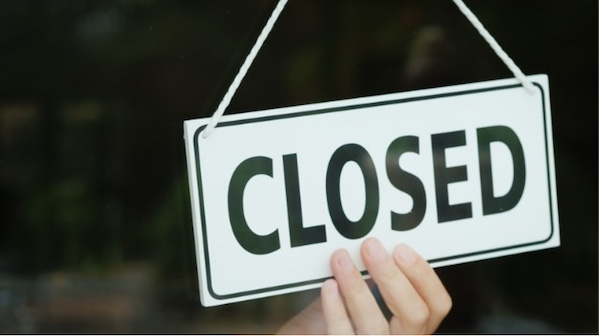Flagship-Founded Microbiome Company Evelo Biosciences Throws in the Towel
November 25, 2023
Source: drugdu
 412
412
By Kate Goodwin
 Pictured: Closed sign/iStock, StockSeller_ukr
Pictured: Closed sign/iStock, StockSeller_ukr
After a couple of disappointing years, a microbiome biotech founded by Flagship Pioneering is calling it quits. In an SEC filing Monday, Evelo Biosciences reported that dissolution is “in the best interest” of the company as well as its creditors and stockholders.
The company was launched in 2015 by Flagship to develop inflammation-resolving microbe medicines to act on cells in the small intestine with systemic therapeutic effects for inflammatory diseases.
However, the past two years have been tough for Cambridge, Mass.-based Evelo as one by one each of its assets disappointed. After a Phase II failure in April 2022, its second atopic dermatitis candidate in Phase II testing did not meet the trial’s primary endpoint in February 2023. The company pointed to an unusually high placebo response rate. The results sent Evelo’s stock tumbling 50% at the time and the company cut around 45% of its workforce.
It's been a downward slide ever since. Another Phase II fail in October 2023 for a potential psoriasis medicine was the proverbial nail in the coffin. At the time, Evelo announced it had “initiated a process to explore strategic alternatives.”
According to Monday’s SEC filing, the company sought potential funding sources and other ways to continue operations but has “not found a viable alternative” outside of dissolving the company to pay its creditors and possibly return some funds to its shareholders. Its microbiome medicines had once been very promising with earlier investments from big names like GV, Mayo Clinic and Celgene.
As its C-suite team steps down and the board departs, an insolvency expert will oversee the dissolution as Rock Creek Advisors seek profitable options for its assets. An SEC filing in November 2023 revealed the company only had $17.3 million in cash on hand, while carrying a $588 million deficit.
Flagship lost another microbiome-focused company in April 2022 when Kaleido Biosciences ceased operations for similar reasons—cash ran out and other options failed. The company had been developing microbiome metabolic therapies, one of which was a COPD drug being run in COVID-19 studies without proper FDA authorization.
Read more on
- The first subject has been dosed in the Phase I clinical trial of Yuandong Bio’s EP-0210 monoclonal antibody injection. February 10, 2026
- Clinical trial of recombinant herpes zoster ZFA01 adjuvant vaccine (CHO cells) approved February 10, 2026
- Heyu Pharmaceuticals’ FGFR4 inhibitor ipagoglottinib has received Fast Track designation from the FDA for the treatment of advanced HCC patients with FGF19 overexpression who have been treated with ICIs and mTKIs. February 10, 2026
- Sanofi’s “Rilzabrutinib” has been recognized as a Breakthrough Therapy in the United States and an Orphan Drug in Japan, and has applied for marketing approval in China. February 10, 2026
- Domestically developed blockbuster ADC approved for new indication February 10, 2026
your submission has already been received.
OK
Subscribe
Please enter a valid Email address!
Submit
The most relevant industry news & insight will be sent to you every two weeks.



